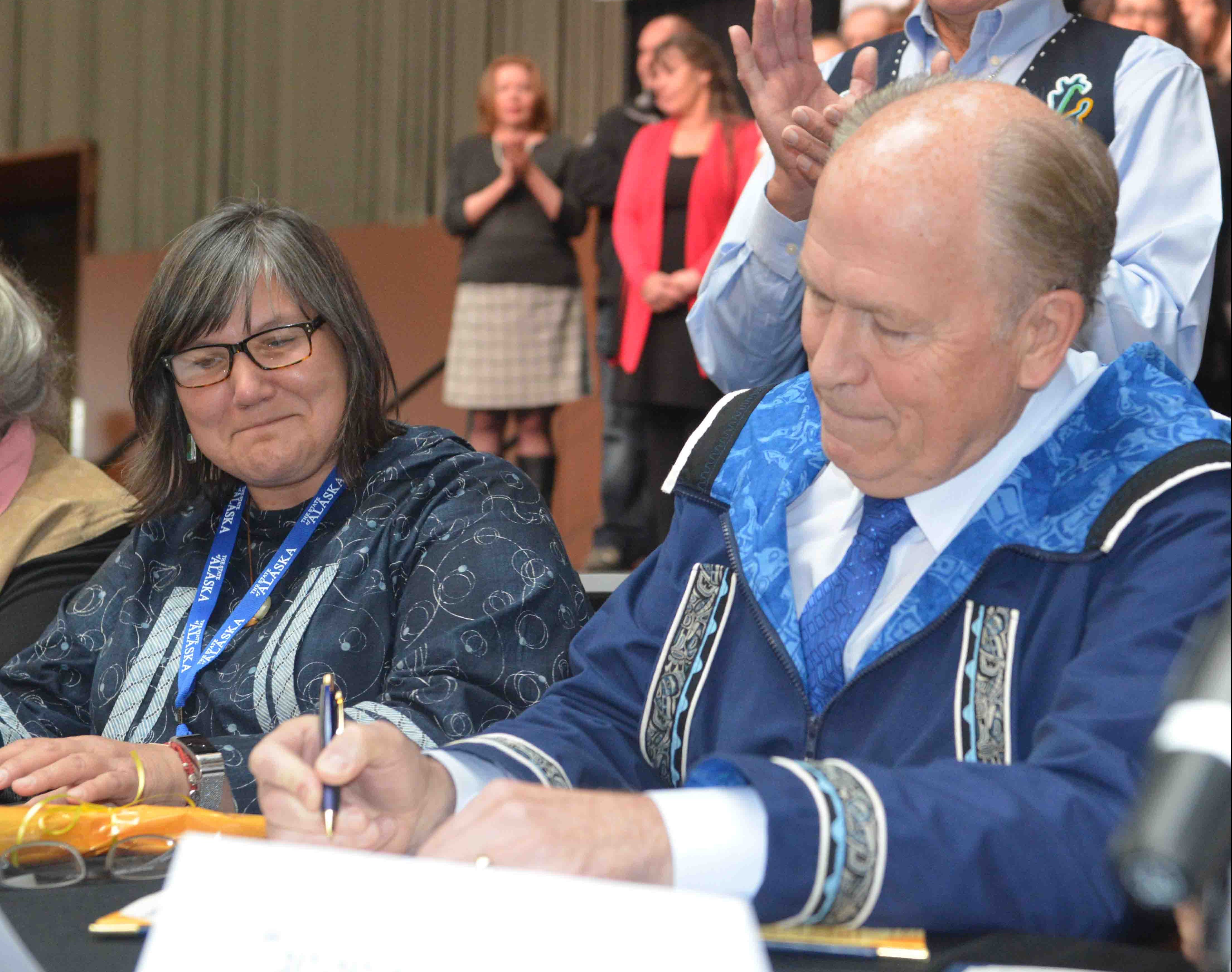
The state of Alaska has entered into a first-of-its kind compact to let tribes and tribal organizations take over child welfare services in their communities.
State officials say the new Alaska Tribal Child Welfare Compact — signed today at the 51st annual Alaska Federation of Natives convention in downtown Anchorage — is “historic” and unique in the United States. Its aim is to preserve Alaska Native culture through giving tribes and tribal organization the ability to oversee local child welfare problems, rather than social workers coming in from outside their communities, often resulting in children being removed from their communities.
So far, 18 Alaska Native tribes or tribal organizations are a part of the new compact, and negotiations to add others will be done on an annual basis as more than 200 tribes and organizations watch, learn and make decisions on how they want to handle child welfare services.
Department of Health and Social Services Commissioner Valerie Davidson said child services comprise some of the most difficult social work her department oversees. She thanked those who do it.
“You see things that no adult should ever see about things that happen to children throughout our state,” Davidson said in a speech to AFN attendees. “We know that is incredibly hard work, and so we offer our heartfelt quyana for helping to our children be, ultimately, who they are meant to be.”
The compact allows tribes and tribal organizations to assume certain responsibilities, negotiated on an organization-by-organization basis, that have been under the purview of the state Office of Children’s Services. That includes assisting or conducting investigations of child welfare cases, the placement of children in out-of-home care, and licensing foster homes, among other things. Further along, there will also be decisions on how the state funds those services through the tribes and tribal organizations.
Davidson said there are a variety of problems the compact aims to solve. One, she said, is that about 20 percent of all Alaska children are Alaska Native or American Indian, but Native kids represent more than half of those placed in out-of-home care.
“That disproportionality tells us that what we’re doing right now isn’t working and we need to do better,” Davidson said. “What we learned is that when children and families have better outcomes when care is provided closer to home.”
The compact is based on the Alaska Tribal Health Compact, a similar agreement that gives authority to tribes and tribal organizations in managing health care.
For Davidson, the health commissioner and an Alaska Native herself, the issue of providing more tailored care for kids and families in need is an emotional one. During an interview, her eyes teared up and she jokingly blamed allergies.
But Davidson had a somber tone describing the messages she says she sees on social media all too often.
“They say, ‘I’ve been told my mom is from this village. I’m wondering if anybody knows who my family is.’ And we see that all the time, it’s heartbreaking,” Davidson said. “My children’s generation? I don’t want them to see that anymore. I want our children to know who they are, to know what village they’re from, to know what tribe they’re from and have no question about their culture.”
Just before signing the compact, Gov. Bill Walker told the convention attendees there may be similar tribal state agreements in the future.
“This is just the beginning. There are more things we can do with the same process,” Gov. Walker said. “There has to be a first step. It’s a recipe for what more we can do.”
Casey Grove is host of Alaska News Nightly, a general assignment reporter and an editor at Alaska Public Media. Reach him at cgrove@alaskapublic.org. Read more about Casey here.





